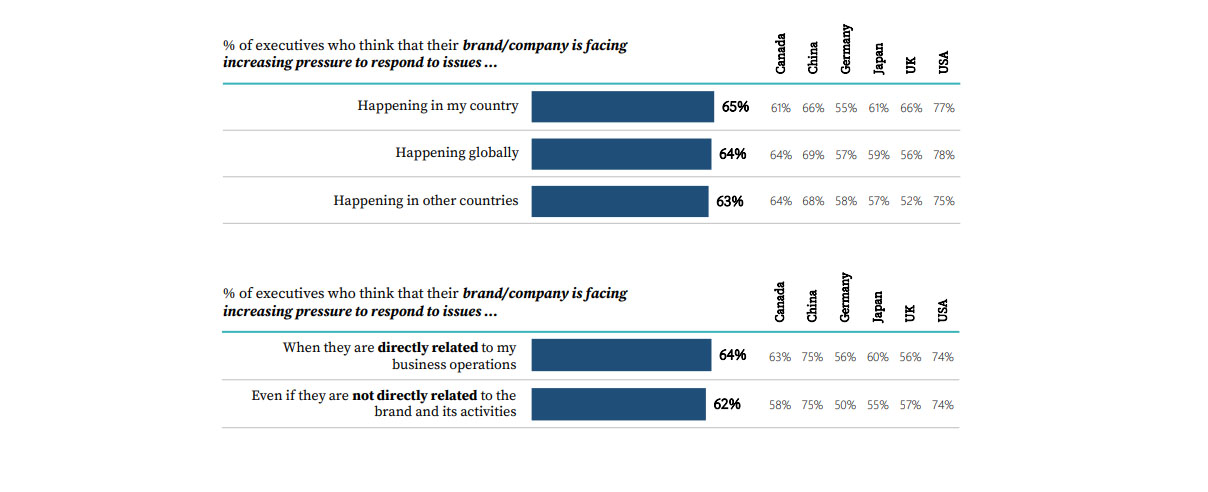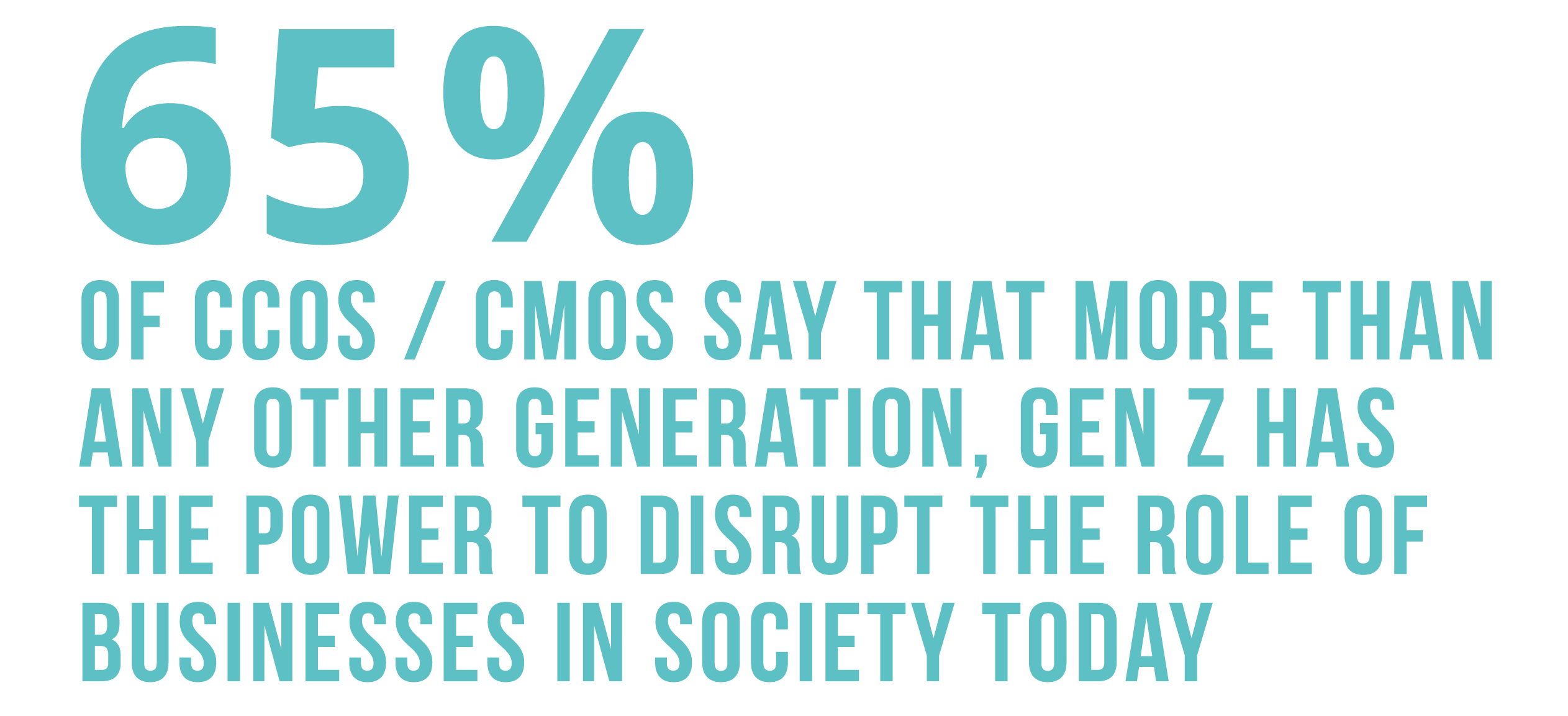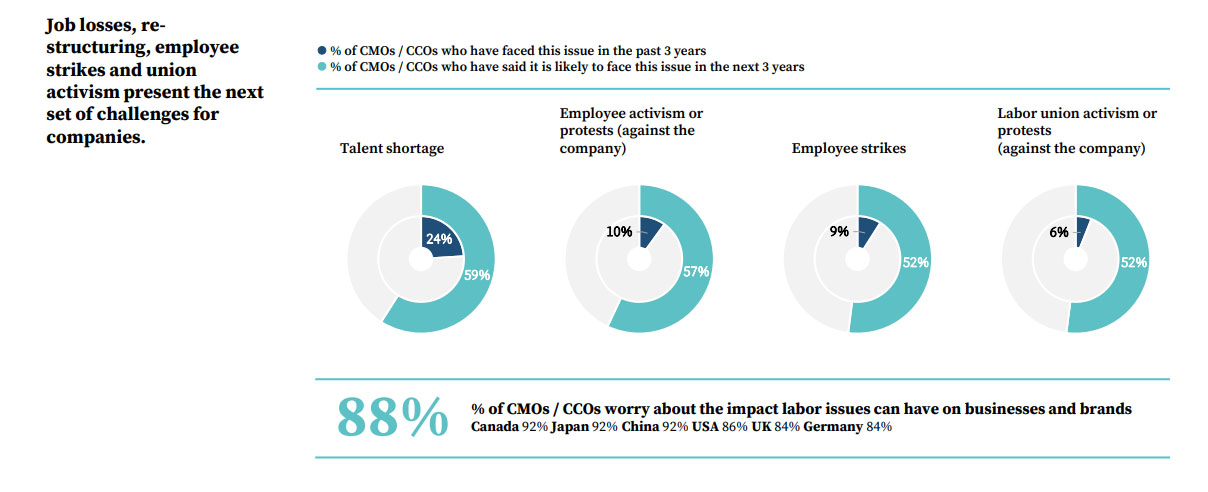Our latest Connected Crisis study tells a clear picture of companies grappling with a non-stop barrage of issues from every angle, and of executives feeling the pressure. Growing expectations for hyper-transparency, and pressure for immediate action, further complicate today’s crisis management landscape. Crisis management has become the fastest-growing area of responsibility for CCOs and CMOs.
Against this backdrop, executives are worried about a wide range of business-shifting problems, and they recognize that these issues can have a significant impact on not just their reputations, but their business operations, too. Our 2022 Edelman Connected Crisis study shows companies continue to underestimate the expectation to engage on societal issues, and unpacks how Gen Z is challenging the role of businesses in times of crisis.






